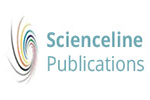(2023) The Protective Effects of Melatonin against Brain Disorders Induced by the Western Diet in Male Rats. World's Veterinary Journal. pp. 264-284. ISSN 2322-4568
|
Text
article/77/WVJ 13(2), 264-284, June 25, 2023.pdf - Published Version Download (1MB) |
Abstract
Globally, the effects of consuming a diet rich in fat have gained great concerted attention. The current study was conducted to evaluate the protective effects of melatonin on neurological disorders induced by the western diet in rats. A total of 30 adult male white local Iraqi rats were randomly assigned to three equal groups, including control (CC), high-fat diet (HFD), and melatonin group (HFD+M, a high-fat diet along with intraperitoneal injections of 10 mg/kg body weight melatonin) for 8 weeks. The rats were analyzed in terms of brain tissue concentration of dopamine, tumor necrosis factor (TNF), and nervous system impairment using Barns maze task and elevated plus maze. The findings revealed a significant decline in the dopamine concentration of the HFD group after 8 weeks of treatment, compared to CC and HFD+M groups. Moreover, there was a significant increase in brain TNF-α concentration in the group fed HFD, compared with CC and HFD+M. Finally, the melatonin treatment significantly reduced spatial memory impairments and anxiety induced by HFD in rats. After 8 weeks, the histological examination revealed that brain section rats on an HFD indicated significant congestion in the blood vessels with marked cerebral edema, where there was a dilation of Virchow-Robin space, severe congestion, and infiltration of inflammatory cells in the meninges. The HFD+M groups showed normal meninges without any inflammatory exudate except for a few congestions in the blood vessels and no or mild vacuolations in the cerebral tissue, gliosis, and astrocytosis. In contrast, male rats fed an HFD showed vacuolation and aerophagia in brain tissue and a marked aggregation of the proliferation of astrocytes and a proliferation of microglial cells in the cerebral. In conclusion, HFD impairs brain neurotransmitters, induces pro-inflammatory changes, and affects learning ability and memory by changing the structure of neural tissue. Melatonin can ameliorate HFD-caused effects. © 2023, World''s Veterinary Journal. All Rights Reserved.
| Item Type: | Article |
|---|---|
| Keywords: | dopamine; formaldehyde; ketamine; melatonin; phosphate buffered saline; sodium chloride; tumor necrosis factor; xylazine, adult; aerophagia; animal behavior; animal cell; animal experiment; animal model; animal tissue; anxiety neurosis; Article; astrocyte; astrocytosis; Barnes maze test; body weight; brain disease; brain edema; brain tissue; cell aggregation; cell infiltration; cell vacuole; cognition assessment; controlled study; drug effect; elevated plus maze test; gliosis; histology; hyperemia; inflammatory cell; Iraqi; learning disorder; lipid diet; male; memory disorder; meninx; microglia; nervous system; neuroprotection; nonhuman; perivascular space; rat; spatial memory; statistically significant result; task performance; tissue structure; treatment duration; Western diet |
| Subjects: | S Agriculture > SF Animal culture |
| Divisions: | World's Veterinary Journal (WVJ) |
| Page Range: | pp. 264-284 |
| Journal or Publication Title: | World's Veterinary Journal |
| Journal Index: | Scopus |
| Volume: | 13 |
| Number: | 2 |
| Publisher: | Scienceline Publication, Ltd |
| Identification Number: | https://doi.org/10.54203/scil.2023.wvj29 |
| ISSN: | 2322-4568 |
| Depositing User: | Dr. Alireza Sadeghi |
| URI: | http://eprints.science-line.com/id/eprint/795 |
Actions (login required)
 |
View Item |


 Dimensions
Dimensions Dimensions
Dimensions